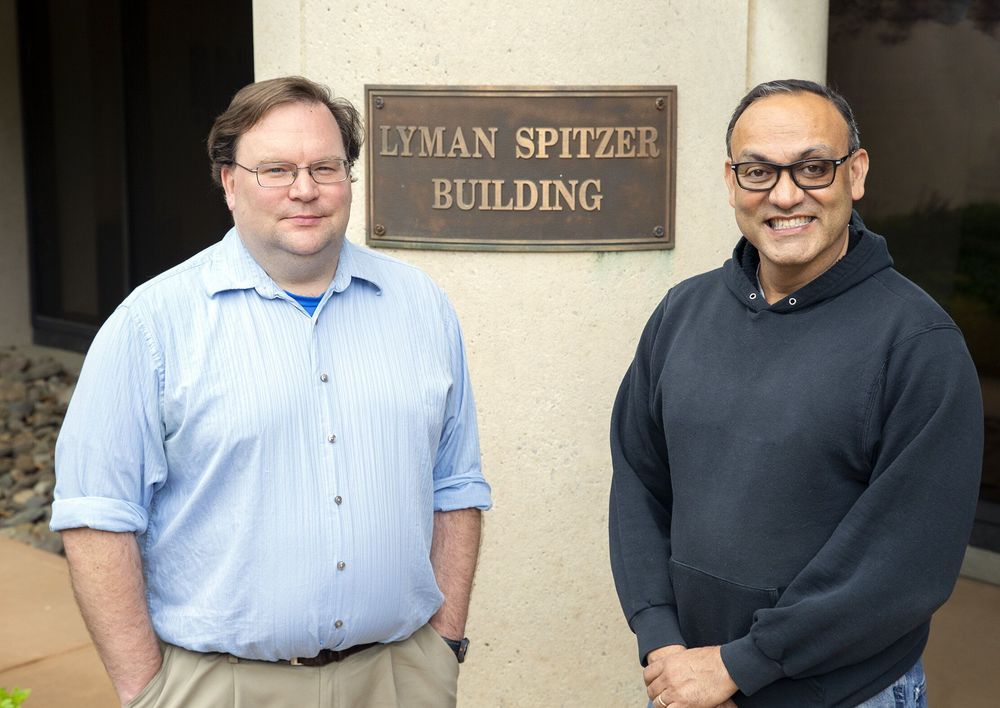Atomic interactions in everyday solids and liquids are so complex that some of these materials’ properties continue to elude physicists’ understanding. Solving the problems mathematically is beyond the capabilities of modern computers, so scientists at Princeton University have turned to an unusual branch of geometry instead.
Researchers led by Andrew Houck, a professor of electrical engineering, have built an electronic array on a microchip that simulates particle interactions in a hyperbolic plane, a geometric surface in which space curves away from itself at every point. A hyperbolic plane is difficult to envision—the artist M.C. Escher used hyperbolic geometry in many of his mind-bending pieces—but is perfect for answering questions about particle interactions and other challenging mathematical questions.
The research team used superconducting circuits to create a lattice that functions as a hyperbolic space. When the researchers introduce photons into the lattice, they can answer a wide range of difficult questions by observing the photons’ interactions in simulated hyperbolic space.







